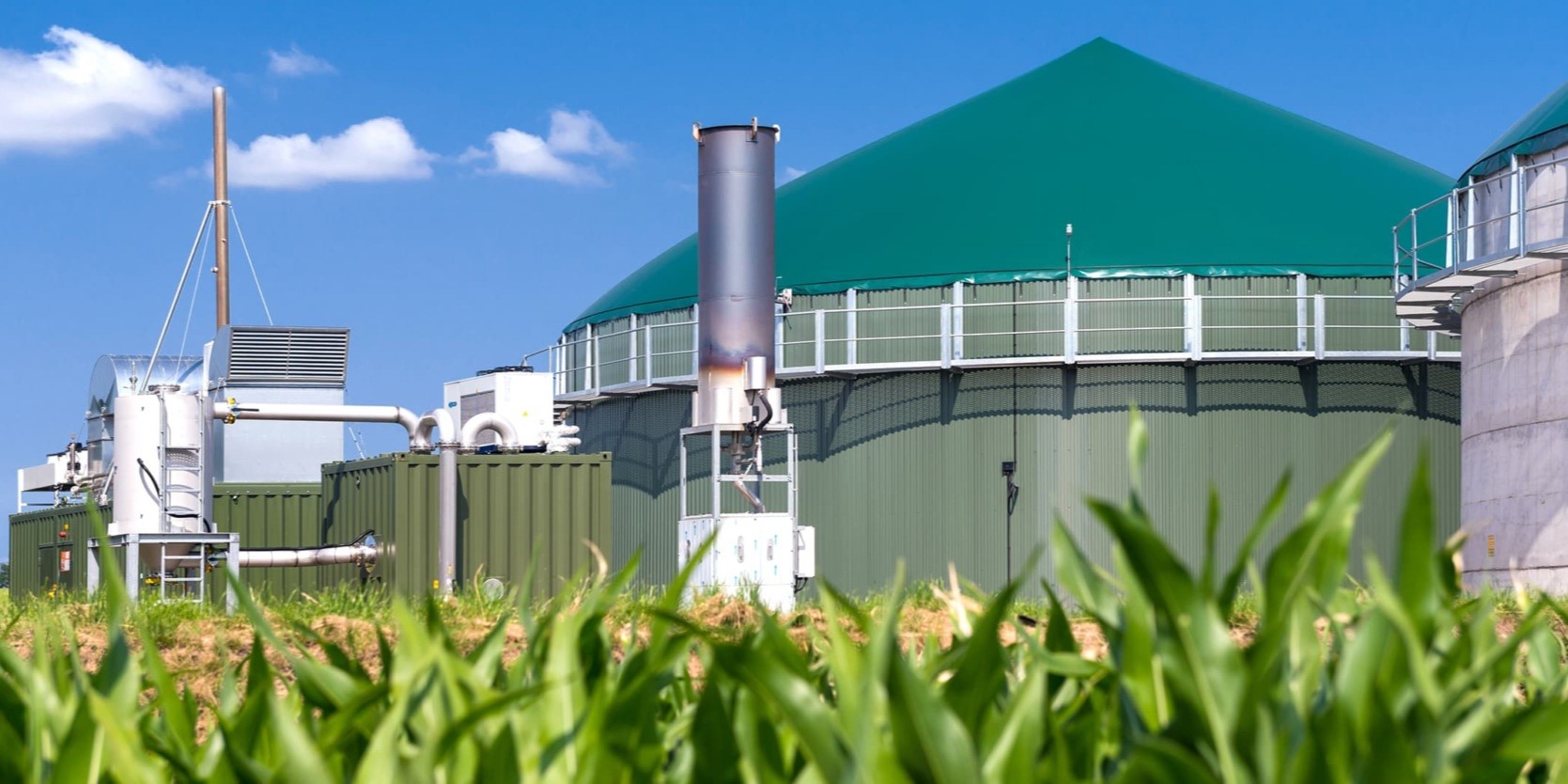
Biomass energy, derived from organic materials such as plants and animals, has gained significant attention as a renewable and sustainable energy source. This form of energy harnesses the natural process of photosynthesis, where plants capture solar energy and convert it into chemical energy, making it a vital component of the Earth's carbon cycle. As the world seeks alternative energy solutions to reduce reliance on fossil fuels and mitigate environmental impact, biomass energy has emerged as a promising contender.
In this article, we will delve into 15 important facts about biomass energy, exploring its history, applications, environmental impact, and potential for the future. From its ancient roots in human civilization to its modern adaptation as a renewable energy source, biomass energy offers a compelling narrative that intertwines with the evolution of human ingenuity and environmental consciousness. Join us as we unravel the intricacies of biomass energy and uncover its role in shaping the sustainable energy landscape of tomorrow.
Key Takeaways:
- Biomass energy, made from organic materials, helps reduce greenhouse gas emissions and supports rural economies, offering a sustainable alternative to fossil fuels.
- Biomass energy promotes sustainable land use and contributes to climate change mitigation, aligning with global sustainable development goals for a cleaner, greener future.
Biomass Energy is Renewable
Biomass energy is derived from organic materials such as wood, agricultural residues, and other biological waste. This energy source is considered renewable because the organic matter used to produce it can be replenished over a relatively short period of time, making it a sustainable alternative to fossil fuels.
Biomass Energy Reduces Greenhouse Gas Emissions
One of the key benefits of biomass energy is its ability to mitigate greenhouse gas emissions. When organic waste decomposes in landfills, it releases methane, a potent greenhouse gas. By utilizing biomass for energy production, these emissions are significantly reduced, contributing to a cleaner and more sustainable environment.
Biomass Energy Utilizes Various Feedstocks
Biomass energy can be generated from a wide range of feedstocks, including forestry residues, agricultural byproducts, dedicated energy crops, and organic municipal waste. This versatility allows for flexibility in biomass energy production, making it a valuable resource for diverse energy needs.
Biomass Energy Can Replace Fossil Fuels
As a renewable energy source, biomass has the potential to replace traditional fossil fuels in various applications, including electricity generation, heating, and transportation. By transitioning to biomass energy, societies can reduce their reliance on non-renewable resources and move towards a more sustainable energy mix.
Biomass Energy Supports Rural Economies
The production of biomass energy often involves local sourcing of feedstocks, which can provide economic opportunities for rural communities. This decentralized approach to energy production can create jobs and stimulate economic growth in agricultural regions, contributing to a more balanced and resilient economy.
Biomass Energy Requires Efficient Conversion Technologies
To harness the energy potential of biomass, efficient conversion technologies such as combustion, gasification, and anaerobic digestion are utilized. These processes transform organic materials into heat, electricity, or biofuels, enabling the effective utilization of biomass resources for energy generation.
Biomass Energy Can Contribute to Waste Management
By utilizing organic waste materials for energy production, biomass energy plays a role in waste management by diverting organic matter from landfills and reducing the environmental impact of waste disposal. This dual benefit addresses both energy needs and waste reduction, promoting sustainability.
Biomass Energy Has Historical Roots
The utilization of biomass for energy dates back centuries, with early human societies relying on wood and other organic materials for heating and cooking. This historical precedent underscores the enduring relevance of biomass as a fundamental energy source throughout human civilization.
Biomass Energy Offers Carbon Neutrality
When sustainably managed, biomass energy systems can achieve carbon neutrality, as the carbon dioxide released during combustion is balanced by the carbon dioxide absorbed during the growth of biomass feedstocks. This equilibrium contributes to overall carbon reduction efforts and environmental sustainability.
Biomass Energy Encourages Sustainable Land Use
The cultivation of energy crops for biomass production can promote sustainable land use practices, including reclamation of marginal lands and the implementation of agroforestry systems. These approaches support biodiversity, soil health, and ecosystem resilience while contributing to renewable energy production.
Biomass Energy Enhances Energy Security
Diversifying energy sources through the integration of biomass energy enhances overall energy security by reducing dependence on imported fossil fuels. This resilience in the energy supply chain can mitigate geopolitical risks and strengthen national energy independence.
Biomass Energy Sparks Innovation in Bioenergy Research
The development of biomass energy has spurred innovation in bioenergy research, leading to advancements in biofuel production, biomass conversion technologies, and sustainable feedstock cultivation. These ongoing efforts contribute to the evolution of biomass energy as a dynamic and progressive field.
Biomass Energy Promotes Circular Economy Principles
The utilization of biomass energy aligns with the principles of a circular economy by integrating organic waste streams into energy production cycles. This circular approach maximizes resource efficiency and minimizes waste, contributing to a more sustainable and regenerative economic model.
Biomass Energy Supports Sustainable Development Goals
The adoption of biomass energy aligns with global sustainable development goals by addressing climate action, promoting clean energy access, and fostering economic opportunities in rural and agricultural sectors. This alignment underscores the multifaceted benefits of biomass energy in advancing sustainable development.
Biomass Energy Contributes to Climate Change Mitigation
By displacing fossil fuel consumption and reducing greenhouse gas emissions, biomass energy plays a role in climate change mitigation efforts. This contribution to mitigating climate change underscores the significance of biomass energy in transitioning towards a low-carbon future.
Biomass energy, derived from organic materials, represents a versatile and sustainable energy resource with diverse applications across various sectors. The utilization of biomass for energy production aligns with renewable energy goals, waste management strategies, and sustainable development initiatives, contributing to a more resilient and environmentally conscious energy landscape. As societies continue to prioritize decarbonization and sustainable resource utilization, biomass energy stands as a pivotal component in the transition towards a cleaner and more sustainable energy paradigm.
Conclusion
In conclusion, biomass energy offers a promising solution to our growing energy needs while mitigating environmental impacts. Its renewable nature, diverse sources, and carbon neutrality make it a compelling alternative to fossil fuels. As technology continues to advance, biomass energy holds the potential to play a pivotal role in sustainable energy production. By harnessing the power of organic materials, we can pave the way for a cleaner, more sustainable energy future.
FAQs
What are the main advantages of biomass energy?
Biomass energy offers several advantages, including its renewable nature, potential to reduce greenhouse gas emissions, and ability to utilize various organic materials such as wood, agricultural residues, and waste.
Is biomass energy truly sustainable?
Yes, biomass energy is considered sustainable because it relies on organic materials that can be replenished, and it has the potential to reduce reliance on non-renewable fossil fuels. However, sustainable practices in biomass production and use are essential to ensure its long-term environmental benefits.
Was this page helpful?
Our commitment to delivering trustworthy and engaging content is at the heart of what we do. Each fact on our site is contributed by real users like you, bringing a wealth of diverse insights and information. To ensure the highest standards of accuracy and reliability, our dedicated editors meticulously review each submission. This process guarantees that the facts we share are not only fascinating but also credible. Trust in our commitment to quality and authenticity as you explore and learn with us.


